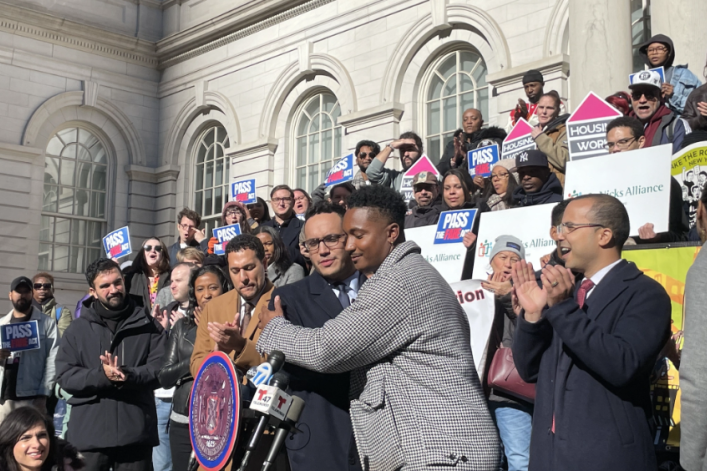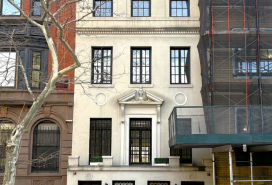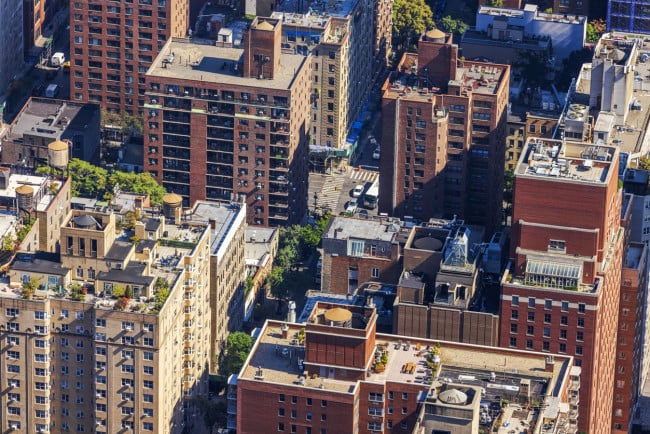NYC's broker fee law survives another challenge from REBNY
- A federal judge rejected claims that the FARE Act singles out brokers and limits free speech

Council members Chi Ossé and Shaun Abreu at a rally before the FARE Act vote in November.
Celia Young for Brick Underground
New York City’s new broker fee law survived another challenge last week led by the Real Estate Board of New York, the powerful real estate trade association.
U.S. District judge Ronnie Abrams last week denied another request for a preliminary injunction from a group comprised of REBNY, real estate firms, and landlords to stop the Fairness in Apartment Rental Expenses (FARE) Act.
The new law took effect June 11th and shifts the longstanding burden of paying brokers’ commissions from renters to the landlords who hire them. Introduced by City Council member Chi Ossé, the FARE Act passed in November with support from 42 council members, more than enough votes to override a mayoral veto.
Abrams previously dismissed a June 10th challenge from REBNY to block implementation of the law and dismissed its claim that the FARE Act is unconstitutional and superseded by state law, narrowing the scope of the suit.
A ‘repackage’ of previous motions
On July 12th, the judge again rejected the plaintiffs’ claims that the FARE Act singles out brokers and limits free speech. The arguments “repackage” previous motions, she said.
The FARE Act,"does not unfairly target brokers, nor does it target their messages for disfavored treatment. Instead, as the court stated in its prior opinion, the FARE Act is content neutral," the judge wrote.
The judge declined to “weigh their evaluation of the FARE Act’s wisdom against that of the City Council.”
She cited the claim that “consumers who want the option of paying a broker fee instead of higher rent resent having the choice taken away from them” through the FARE Act.
“The court disagrees. The City Council acted in the interest of the 54 percent of the city’s renters who indicated they would prefer to pay a higher monthly rent than a broker’s fee, notwithstanding the preferences of other renters. That policy judgment—good or bad—is not a constitutional violation,” Abrams wrote.
“The court therefore concludes that plaintiffs have not demonstrated a strong likelihood of success on the merits of their appeal. With respect to the other factors, the city will be substantially injured by an injunction,” the judge said.
You Might Also Like



























